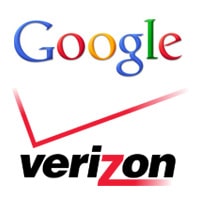“Recent reports that Verizon is blocking Google Wallet on our devices are false,” says Verizon. “We are continuing our commercial discussions with Google on this issue.”

Round one of the battle to win control of consumers’ mobile wallets now looks to have begun in earnest, with US mobile network operator Verizon and Google going head to head over whether Google Wallet will be available on Galaxy Nexus NFC phones supplied by Verizon.
The internet rumour mill has been in overdrive today with speculation over whether Verizon, a partner with AT&T and T-Mobile in the Isis NFC joint venture, had decided to prevent Google Wallet from being available on Galaxy Nexus NFC phones it supplies.
Statements made to the media by both parties during the day have added to the confusion, but it now looks as though Verizon is continuing to discuss the matter with Google and no final decision has been made.
The day began with rumours that there would be no Google Wallet on Verizon Galaxy Nexus phones, even though the devices come as standard with a Google-owned embedded secure element chip. The rumours were then confirmed by ComputerWorld, where JR Raphael reported that:
A Google spokesperson confirms to me that the Verizon Galaxy Nexus will not include Google Wallet — and that the choice was made by (you guessed it) Verizon.
Google then confirmed this to NFC World, saying that:
Verizon asked us not to include this functionality in the product
An article then appeared on Bloomberg, which suggested that Verizon had blocked Google Wallet for security reasons:
Verizon Wireless, the largest US wireless carrier, blocked Google Inc’s mobile-payment system from the new Galaxy Nexus smartphone, citing security concerns.
Verizon Wireless, co-owned by Verizon Communications Inc. (VZ) and Vodafone Group Plc (VOD), is working to have “the best security and user experience,” Jeffrey Nelson, a company spokesman, said today in an e-mailed statement. The Basking Ridge, New Jersey- based carrier will allow the Google service, called Google Wallet, “when those goals are achieved.”
The full statement, however, turned out to mean something a little different:
We’re working to provide expanded services that will provide the best security and user experience in the market around m-commerce. We expect to provide access to an open wallet when those goals are achieved.
Google then responded to NFC World with the simple statement:
Google Wallet is a secure way to make payments.
Then things got really interesting. After reading the Bloomberg article, NFC World had asked Verizon to send us a copy of the statement sent to the news service. Instead we got this, from Verizon spokesperson Jeffrey Nelson:
Recent reports that Verizon is blocking Google Wallet on our devices are false. Verizon does not block applications.
Google Wallet is different from other widely-available m-commerce services. Google Wallet does not simply access the operating system and basic hardware of our phones like thousands of other applications. Instead, in order to work as architected by Google, Google Wallet needs to be integrated into a new, secure and proprietary hardware element in our phones.
We are continuing our commercial discussions with Google on this issue.
Exactly what that statement actually means is not 100% clear. But, it does look as though:
- Verizon considers phones it provides to its subscribers to be “our phones” and it’s therefore up to the carrier to decide what hardware-based functions should be enabled — or not enabled — on the phones it supplies.
- Verizon started off determined not to have Google Wallet on its Galaxy Nexus phones, but is now reconsidering.
- Which way Verizon goes on this is likely to have widespread international implications. If Google wins with Verizon, it’s likely to win against other carriers too.
Will the Verizon Galaxy Nexus get Google Wallet in the end? The answer, for the moment at least, seems to be: “nobody knows — not even Google and Verizon”.
Next: Visit the NFCW Expo to find new suppliers and solutions